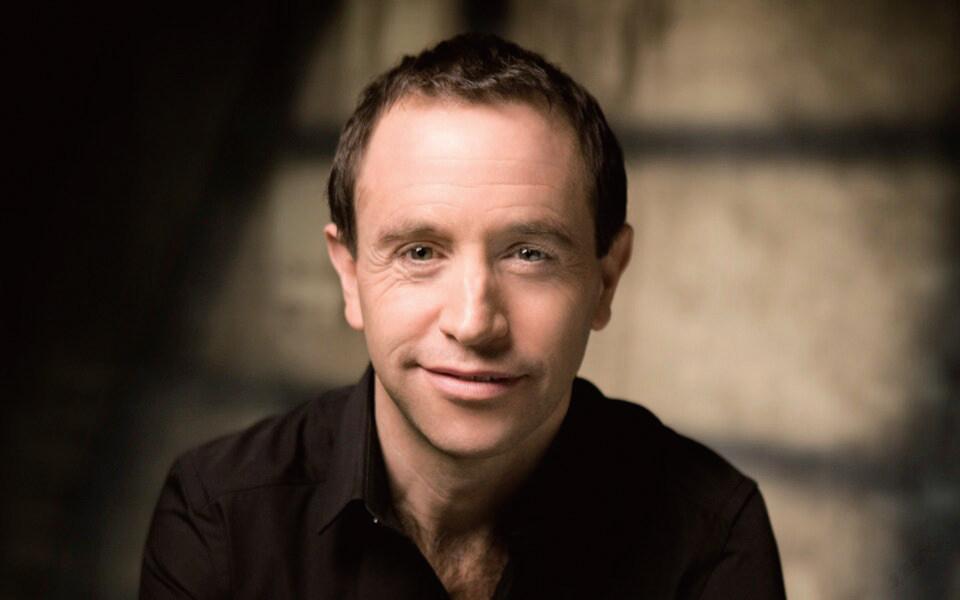英国国家歌剧院将最后一次谢幕吗?
司马勤



“历史不会重复,但会经常押韵。”大文豪马克· 吐温如是说。放眼最近的歌剧世界,我觉得最起码应该是莎士比亚十四行诗(或唐宋绝句)式的“韵脚”正在上演。
多年前我刚搬到纽约市,感觉特别骄傲,因为这个城市与其他欧洲文化重镇——柏林、维也纳、巴黎与伦敦——看齐,它们都拥有不止一家大型歌剧院。与其他都市一样,纽约的歌剧界基本上包含着两个极端:一个是高高在上绝不妥协的文化圣殿,另一个是为普罗大众提供文娱节目的剧院。
回溯到2010年,我目睹了我最喜爱的歌剧院——为大众服务的那类——开始走下坡路,就这样过了三年,它更是在众目睽睽之下,痛苦地突然倒闭。海明威笔下的人物曾经这样描述自己是如何知音行天下FREQUENT FLYER CRITIC倾家荡产的:“渐渐地,然后,突然地。”这也可以套用在歌剧舞台上,但规模要大得多。
原因当然很多,但绝大部分的病征可追溯到无可厚非的事实:纽约的“亚军歌剧院”面对的挑战来自规模更小、操作更灵活的小型歌剧团,这也意味着竞争力更强。为了生存,市立歌剧院必须重新审视自己此前惯用的商业模式。歌剧院“奄奄一息”的那几天,有很多人出谋划策,这些新概念也许可以拯救歌剧院,但可惜全都迟来了一步。市立歌剧院的最后一任总经理乔治· 斯提尔(George Steel)当年成为众矢之的,饱受批评,但其实董事局成员在斯提尔上任前早已经做出了很多愚昧的抉择。几年后,纽约市立歌剧院重整旗鼓,套用了新的营运模式(有意思的是,这其中很多都是斯提尔当年的想法)。遗憾的是,市立歌剧院再也不是纽约歌剧院中的“第二名”了。到了今天,在芸芸的歌剧院中,它的综合实力连前五名都挤不进。
令我特别失望的是,在过去几周里,这个故事竟然在大西洋彼岸重演。严格地说来,也不算是“依葫芦画瓢”;正如吐温先生所说,故事是不完整地重复,细节上也不相对称。纽约市立歌剧院当年面对的是内部运营调整的重重难关,而这次英国国家歌剧院的风波——就像英国自脱欧以来面对的大部分问题那样——往往源自眼光短浅的执政者。但最终,到头来的结果可能都差不多。
11月4日, 英国艺术委员会(Arts CouncilEngland)——这个隶属于英国数字化、文化、媒体和体育部, 但不属于任何政府部门的公共机构——宣布将削减艺术资助资金,矛头直指扎根在伦敦的各个院团。受影响的院团包括皇家歌剧院(每年减少290万英镑),南岸中心(Southbank Centre,每年减少190万英镑)以及英国国家剧院(National Theatre,每年减少85 万英镑)。但是损失最惨烈的受害者是英国国家歌剧院,该院每年获资助的1260万英镑将被削减近三分之二:未来三年内将只获得共1700万英镑的拨款。
然而,并非所有人都对此感到惊讶。英国国家歌剧院首席执行官斯图尔特· 墨菲(Stuart Murphy)在10月时已经对外宣布,他将于明年9月卸任。我曾经目睹英国“大众歌剧院”的这位领导人的处事风格,他令我五体投地。如今,他那么高调地请辞,或许是因为早已听到了风声吧。“在过去4年内,(艺术委员会)赞扬我们在各方面屡创佳绩。歌剧院运营良好,财政稳定,”墨菲在接受《卫报》(TheGuardian )访问时说。“我们有七分之一的观众群体年龄在35岁以下。艺术委员会决意要腰斩这家最具创新力量的歌剧院——我们五分之一的演员属于少数族裔,拥有全英最多元族裔的全职乐团与合唱团,平均票价是皇家歌剧院的四分之一——这个决定真的令人难以置信。”
当不面对公众时,墨菲则更加直言不讳。他约见了文化部部长米歇尔· 多尼兰(Michele Donelan),并在会议中就这个议题据理力争。艺术委员会发出公告后的一天内,英国国家歌剧院就得到了英国大多数主要歌剧院的支持。著名威尔士男中音布莱恩· 特菲尔(Bryn Terfel)更发起了一项互联网签名活动,一天之内就收集了超过2.4万个网友的签名。
尽管创立与发展的历史不同,纽约市立歌剧院与英国国家歌剧院往往被归为同一类别。它们在公众心目中的昵称甚至都一样:“大众歌剧院”。但两者的官方名称彰显了它们来自不同背景:一个属于城市(纽约),另一个代表着整个英格兰。英国艺术委员会这个举动的潜在意图很快就被“起底”了:旨在把全英至少20% 的艺术资金从英国首都分散到“大后方”。与此同时,又传出要求将国家歌剧院从伦敦迁至曼彻斯特的传言。短短几天后,艺术委员会就正式发出声明:“如果英国国家歌剧院仍然希望获得资助的话,我们要求它搬迁到英国的另一地区。”艺术委员会还提出,他们乐意补贴搬迁费用以及制定一个新的运营计划。
然而,很少有人会相信艺术委员会的论述。指挥马克· 维格斯沃(Mark Wigglesworth) 曾于2015–2016年演出季短暫地担任了英国国家歌剧院音乐总监,他在《卫报》上描述艺术委员会的这一决定属于一连串“笨拙的、眼光短浅的文化模式破坏”。刚刚卸任巴比肯艺术中心(Barbican Centre)总经理的尼古拉斯· 凯尼恩(Nicholas Kenyon)宣称,他认为这一举措明显带有政治动机,是对歌剧艺术的刻意攻击。其他位于伦敦以外的歌剧院团也面临削减资助的困境,其中包括格林德伯恩歌剧节(预计将失去36% 的资助)与威尔士国家歌剧院(减少53%的资助)。
几天后,艺术委员会首席执行官达隆· 亨利(Darren Henley)亲自在报上发表言论,维护他们的政策。他声称委员会并没有计划“撤资歌剧”,而是要确保歌剧拥有更为坚实的未来。艺术委员会将拨出40% 的经费用于资助民间院团,如英国巡回歌剧团(English Touring Opera)、国家歌剧工作室(National Opera Studio)、英国青年歌剧团(BritishYouth Opera),以及总部位于布里克斯顿(黑人人口很高的伦敦地区)、提携非洲裔与亚裔艺术家的天马歌剧团(Pegasus Opera Company)。文章提到,歌剧的未来将是在酒吧及停车场等场所与大众亲密接触,而“具有成就的开拓者,如英国国家歌剧院与其他院团,将携手为新观众创造未来”。至于如何开发额外收入,英国艺术委员会补充道,英国国家歌剧院坐落在伦敦的黄金地段,歌剧院大可以卖掉他们现在的驻地,即伦敦大剧院(LondonColiseum),或以高价将场地租给商演机构。
这一切听起来言之凿凿。问题是,所有的这些没有一个论点与现实相符,艺术委员会不光忽略了当事者,而且没有与他们认真地交谈过。正如维格斯沃提到的,那些新创办的院团的业绩至今没有被公众肯定,但这些早有建树的机构却反而“受罚”。凯尼恩的观点是,这个决定全是基于政治意识形态的需要,而非出于对艺术品质的追求;最令他感到震惊的是,有关部门是否确实科学地验证过,让英国国家歌剧院离开伦敦(它在这里有超过一百年的根基,已有固定的观众群体)搬迁到曼彻斯特(必须从零开始建立受众群)的提议。更不用说,曼彻斯特的文化与政治领导相关部门事先对此事一无所知。
墨菲好像是唯一一个与曼彻斯特的当政者讨论过此事的人。他認为曼彻斯特现有的艺术团体要吸引当地观众已经很吃力了。“艺术委员会没有做好功课,但我们搜罗了充分数据。”他告诉《卫报》。倘若真的搬到曼彻斯特,英国国家歌剧院不光会侵蚀曼彻斯特现有的艺术生态,还会削弱歌剧院筹募捐款资金的能力(伦敦的人口大概950 万,而曼彻斯特的人口仅为280 万)。
凯尼恩又提出另一个论点:如果艺术委员会可以提供有逻辑的实施策略和与一个切实可行的时间表,那么这些决定起码看上去是有理有据的。然而,艺术委员会是一个不需要向公众交代的公共机构,因此该组织完全没有与艺术界沟通交流的意欲。“英国在国际文化舞台上的领先地位日益衰落,这起事件只不过是为这副棺材上再加敲一枚钉子。”他总结道。
截止到发稿前,英国国家歌剧院没有一丁点儿让步的意图。“我们不打算搬家,”国家歌剧院董事局主席哈利· 布伦耶斯(Harry Brünjes)于11月16日在一个跨政党国会工作小组中表示,“搬迁这一说是无稽之谈,这实际上代表着英国国家歌剧院将关门大吉。所有部门加起来将近600位才华横溢、尽心尽力、工作积极的人们,将在伦敦面临失业——大家必须明确这一点……按照现在情况,英国国家歌剧院将于明年4 月倒闭,结束它不到一百年的历史,永远谢幕!”
后续如何,我们拭目以待。
“History doesnt repeat itself,” Mark Twain oncesaid, “but it often rhymes.” Looking at the operaworld, I feel a quatrain coming on.
Back when I first moved to New York, I was proudto be living in one of the few cities in the world withmore than one great opera company, which put uson par with European cultural capitals like Berlin,Vienna, Paris and London. As in most of these cities,New Yorks opera world was basically divided into anuncompromising cultural palace on one hand andpopulist company playing to the masses on the other.
Back in 2010, though, I saw my favorite operacompany—the populist one—head into a slowdownward spiral that three years later became anabrupt, painful death. One of Ernest Hemingwayscharacters once described how he lost all his money:“Gradually, then suddenly.” This was Hemingway writlarge on the opera stage.
There were plenty of reasons for this, but mostsymptoms pointed to the fact that New Yorks “secondcompany” was facing smaller, nimbler competitionand needed a new business model. Many of the ideasfloating around during those final days probablywouldve saved the company, if theyd only startedfloating sooner. Too much blame was thrown atGeorge Steel, the companys final general manager,and not enough at the board members whose baddecisions started pouring long before Steel arrived.New York City Opera did resurface a few yearslater under a business model that, funnily enough,embraced most of Steels ideas, but by then CityOpera was no longer New Yorks second company.Now it barely makes the citys top five.
What makes me particularly sad is that, in the pastfew weeks, Ive seen the whole story repeat itself onthe other side of the Atlantic. Well, not the wholestory; per Mr. Twain, the symmetry isnt perfect. CityOperas problems came largely from within, while theturmoil at English National Opera—like pretty muchall of Englands problems since Brexit—mostly stems from short-sighted government. But ultimately, theresult will probably be the same.
On November 4, Arts Council England—the nondepartmentalpublic body of the Department forDigital, Culture, Media and Sport—announced cutsin arts funding, particularly aimed at London-basedorganizations. Those hit included the Royal OperaHouse (losing ?2.9 million per year), the SouthbankCentre (?1.9 million per year) and the NationalTheatre (?850,000 per year). But the main victim by awide margin was the English National Opera, whoseannual funding of ?12.6 million would be cut bynearly two-thirds, for a total of ?17 million over thenext three years.
Not everyone seemed surprised, however. ENOChief Executive Stuart Murphy, whose public stylein managing “the peoples opera” Ive seen in actionand can personally vouch for, had already announcedin October that he would be stepping down inSeptember 2023, which shouldve been a clue thatsomething was in the air. “For the past four years,[the Arts Council] said we excelled in all criteria, theopera house was well run and financially steady,”Murphy immediately told The Guardian . “One inseven of our audience is under 35. To axe the mostpioneering opera company, where one in five singersis ethnically diverse, with the most diverse full-timeorchestra and chorus in the country, with an averageticket price a quarter of what it is at the Royal OperaHouse, is unbelievable.”
Behind the scenes, Murphy was even moreoutspoken and called a meeting with culturalsecretary Michelle Donelan to state his case. Withina day of the Arts Councils announcement, ENO hadthe support of most of the countrys major operacompanies. Welsh baritone Bryn Terfel started anonline petition of support that garnered more than24,000 signatures its first day.
Despite their different histories, New York CityOpera and ENO were often grouped in the samecategory. Both even had earned the same nickname:“the peoples opera.” But it was the formal name thatmarked the difference: City Opera was essentiallyabout New York; ENO was for all of England. The ArtsCouncils underlying strategy, which soon becamepublic, was to shift at least 20 percent of all artsfunding away from the British capital and into thehinterland. Much talk had already surfaced aboutmoving ENO from London to Manchester. Later thatweek, the Arts Council made a formal announcement:“We require English National Opera to move toanother part of England if they wish to continue toreceive our support.” The Arts Council also offered tohelp with moving costs and a new business plan.
Few people were buying the Councils argument,however. Conductor Mark Wigglesworth, who briefly served as ENO music director in the 2015-16 season, called it a pattern of “ignorant andshortsighted cultural vandalism.” Nicholas Kenyon,until recently the managing director of the BarbicanCentre, claimed it was nothing short of a politicallymotivated attack on opera as an art form. Other opera companies facing major cuts includedGlyndebourne (set to lose 36 percent of its funding)and Welsh National Opera (reduced by 53 percent),neither of which were based in London.
A few days later, Arts Council chief executive DarrenHenley took to the newspapers himself, defendinghis organizations policies. Rather than “defundingopera,” he claimed to be securing its future. Nearly40 percent of the Councils funding would now begoing to grassroots organizations like English TouringOpera, the National Opera Studio and British YouthOpera, as well as the Brixton-based Pegasus OperaCompany, which provides opportunities for artistsof African and Asian heritage. The future of opera,he wrote, is one where people encounter the artform in pubs and parking garages, and “that ENOand other opera companies with pioneering trackrecords, come together and invent a future fornew audiences.” As for additional income, the ArtsCouncil later mentioned, ENO was sitting on primereal estate. They could either sell their home baseat the London Coliseum or rent it for high-payingcommercial events.
This all sounded perfectly level-headed. Theproblem was, none of it seemed to be have beenarticulated to the people involved, or even groundedin reality. As Wigglesworth pointed out, few of the new companies getting money actually had muchof a track record, while the only companies withexperience were the ones getting punished. Kenyonargued that the decision was based on politicalideology rather than artistic quality, and wasparticularly appalled that ENO should leave London,where it had been rooted for more than a hundredyears, to Manchester, where it would have to buildagain from scratch. Nor had cultural and politicalleaders in Manchester been told of the plan.
Murphy, the only person who apparently discussedthe matter with Manchester folks, came awayconvinced that the citys arts community could barelyattract audiences as it is. “Unlike the Arts Council, wedid the numbers,” he told The Guardian . The movewould not only cannibalize Manchesters existing artscommunity, but would decimate ENOs ability to raisefunds (Londons metropolitan population is nearly 9.5million, while Manchesters is about 2.8 million).
Kenyon, for his part, argued that the Arts Councilsedict might have made sense if it came with aplausible strategy and a realistic timeline. Not beingaccountable to the public, however, the Council hasno incentive to engage with the arts communitydirectly. “This is just another nail in the coffin forLondons preeminence in the international culturalscene,” he concluded.
As I write this now, ENO is refusing to back down.“There is no relocation,” ENO board chair HarryBrünjes told an All-Party Parliamentary Group onNovember 16. “This is ENO closing down. This islosing 600 jobs in London of talented and devotedand able people across all departments – so lets getthis clear…As it stands, ENO will close in April afternearly a century, and thats the end of it.”
Watch this space.

